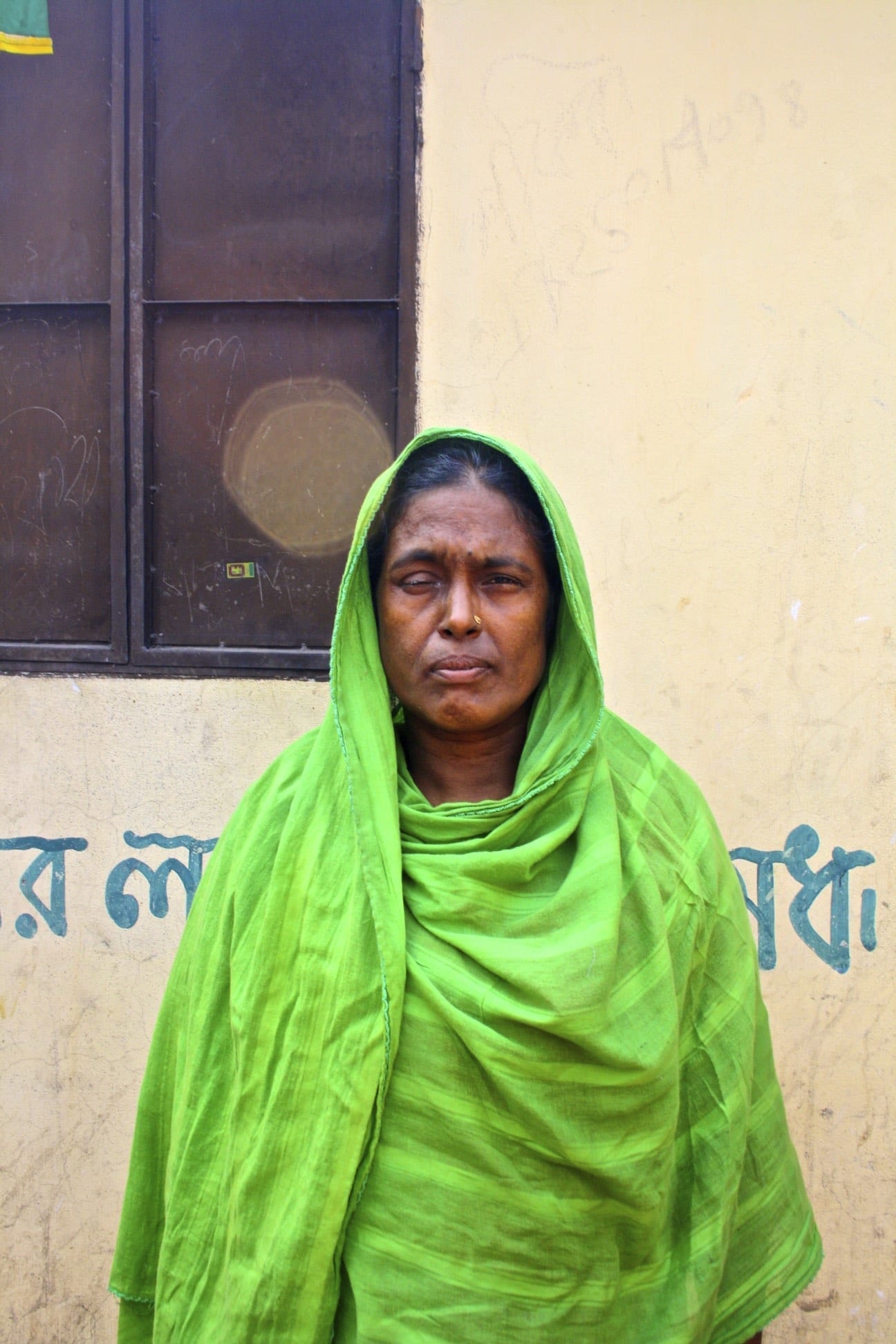
Nov 21, 2014
November 24 marks the two-year anniversary of the deadly fire at Tazreen Fashions Ltd. in Bangladesh that killed 112 garment workers. Since then, at least 30 garment workers have died in factory fires and 844 have been injured in 68 incidents, according to data collected by Solidarity Center staff in Dhaka, the capital. Many of the survivors and their families say they have received little or no compensation, and many survivors are unable to work again.
“Things are getting much, much worse for me,” said Shahanaz, who sustained critical injuries, including loss of vision in her right eye, while fleeing the burning building. “With all of the pain I am in, I can no longer pray while standing.”
Shahanaz is one of nearly a dozen garment workers and family members the Solidarity Center profiled last year. Solidarity Center staff in Dhaka recently visited the workers again, and found that, like Shahanaz, their health and financial situations have deteriorated.
Five months after the Tazreen fire, another 1,100 garment workers in five factories were killed and another 2,500 people were injured when the Rana Plaza building collapsed.
Millions of garment workers, up to 90 percent of whom are women, have made Bangladesh the second largest producer of apparel globally, and 80 percent of the country’s foreign exchange depends upon the industry. Garment workers have toiled for decades in hazardous working conditions with few worker rights. After the Tazreen and Rana Plaza disasters shocked the world, these worker rights violations could no longer be ignored.
Following the Rana Plaza collapse, the United States suspended its Generalized System of Preferences (GSP) agreement with Bangladesh based upon chronic and severe labor rights violations. In the weeks after the suspension, the Bangladeshi government dropped charges against two prominent garment union leaders. It has since registered more than 200 unions representing more than 50,000 workers. By contrast, only two garment unions were registered between 2010 and 2012.
Yet some 25 percent of new unions are in factories that have closed or are inactive due to anti-union activities, according to Solidarity Center data. Further, in at least 46 factories with unions, workers have faced severe anti-union violence, mass terminations and/or threats.
International retailers have joined together in two separate groups to improve safety at factories where they contract work. More than 175 international retailers signed on to the Bangladesh Accord on Fire and Building Safety, a legally binding agreement negotiated with the global unions, IndustriALL and UNI. Another 26 primarily U.S. and Canadian companies signed the Alliance for Bangladesh Worker Safety, which is not legally binding. After inspecting some 1,700 of Bangladesh’s 5,000 garment factories, the Accord and the Alliance identified 33 factories in which safety issues are so serious that they recommended production be suspended because of the risk to workers.
However, questions remain about who will pay for the cost of repairs and who inspects the remaining factories that neither the Accord nor Alliance says are their responsibility. The Accord and Alliance claim 1,800 factories are under their purview, but a recent study estimated the total number is between 5,000 and 6,000 factories and facilities.
The Solidarity Center has had an on-the-ground presence in Bangladesh for more than a decade. This year, following Solidarity Center fire safety trainings, garment workers have used their new skills to identify and correct problems at their worksites. Joni and Rabeya, president and general secretary of B. Brothers Garments Co. Ltd. Workers Union, found 15 expired fire extinguishers and located electrical hazards in their factory, such as faulty electrical wiring. They raised these fire safety issues with management, which has since corrected some of the issues.
Recognizing that workers who freely form unions can better advocate for job safety and decent wages, the Solidarity Center believes there is need for:
• A clear and transparent trade union registration process.
• Quick resolution of unfair labor practices by the Bangladesh Labor Department, with penalties for employers who engage in them.
• Development of an independent alternative dispute resolution mechanism in the face of inefficient labor courts
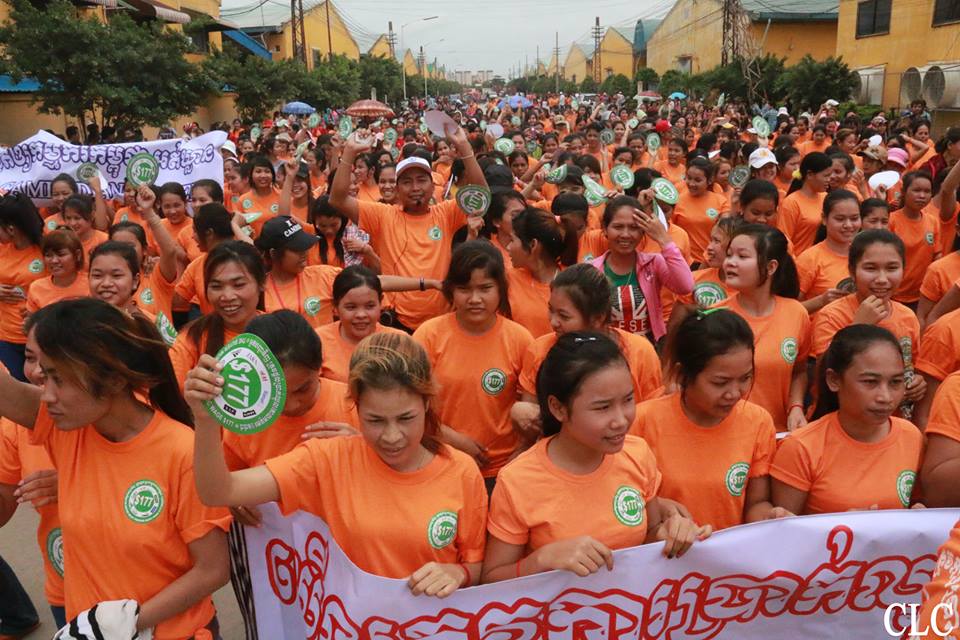
Nov 19, 2014
The Cambodian government announced in recent days it would raise the monthly minimum wage in the textile and apparel industry to $128, an amount workers say falls far short of the amount needed to support themselves and their families and is only $8 above the poverty line.
The new minimum wage also is well below the government’s estimates of wages garment workers need: Late last year, a government-appointed committee announced that a minimum living wage should be between $167 to $177 a month. The minimum wage for garment workers at the time was $80 a month, and even with the increase, Cambodia has among the lowest monthly minimum wage in the industry. Garment-making is Cambodia’s largest industry, accounting for 80 percent of exports.
Tens of thousands of garment workers, the majority of whom are women, have waged a series of mass protests over the past year, demanding a living wage. In January, Cambodian security forces shot into crowds of striking workers, killing at least five, injuring more than 60 and resulting in the arrests and dismissals of dozens of workers and union leaders.
In September, garment workers again took to the streets, demanding $177 per month and directing their protests at global clothing brands. Following the protests, a handful of global brands, including H&M and Zara, said they would pay more for clothing manufactured in Cambodia.
Some 90 percent of the country’s 600,000 garment workers have no permanent contracts and are instead employed under fixed-duration contracts. Without formal employment, workers on contract fear they will lose their jobs if they demand better working conditions. Garment workers on contract also are prevented from accruing seniority and related benefits, and women workers suffer discrimination when taking maternity leave or tending to other family-related duties.
Download the fact sheet, “Cambodia: The Garment Sector and Poverty Wages.”
Nov 17, 2014
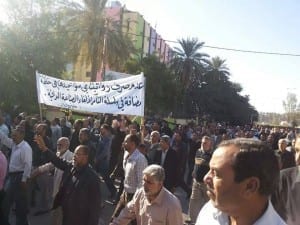
Carrying signs protesting unpaid wages, Iraqi textile workers were among workers from several industries demanding back pay. Credit: Ali Rakeb
The Iraqi government’s offer of partial payment to workers in several industries who have not received salaries for months “is unjust” and should be amended to include all unpaid back pay, says the General Federation of Iraq Trade Unions (GFITU).
The Iraq Council of Ministers last week announced it would pay one month’s wages to workers at plants and factories affiliated with the Ministry of Industry. The companies, which are required to generate sufficient operating revenue to pay 40 percent of workers’ salaries, have repeatedly been unable to do so, and the Ministry of Industry has previously paid workers’ salaries when the companies run out of funds.
The Council of Ministers took the action after thousands of workers in Iraq’s leather, textile and vegetable oil industries protested unpaid wages this month in a series of rallies, most recently in Babylon, where hundreds of workers packed the streets leading to the factory.
Ala’a Sabri, general manager of the association of textile industries in Babylon, said, “the protestors stopped work because they have not been paid since August.”
When vegetable cooking oil company workers in Missan, who also have not been paid since August, took to the streets, they were backed by local government officials who asked the government to pay the workers and renovate Missan’s cooking oil factory, which employs 630 workers.
Clothing company employees in Najaf, who produce men’s suits, pants, jackets, gown’s (dishdasha) and military uniforms, and textile workers in Diwanyya and at the Kut textile factory, also rallied for unpaid wages.
“We are protesting today to request the officials resolve these issues,” Hayder Abdul Amir, one of the protesting employees at Kut, told Al Mada press. “We will continue until they comply with our demands.”
Earlier this month, leather workers, who have not been paid for two months, marched in a large demonstration at two leather companies in Karradha, in central Baghdad. The rally followed one in September, when leather workers protested unpaid wages from July and August.
In an action in support of workers, GFITU members rallied at the Ministry of Interior to demand the government formulate clear policies that guarantee the rights of workers in Iraq’s industrial sector by ensuring workers are paid on time. GFITU also called on the government to take steps to address ongoing factory closures that have put many workers out of a job.
GFITU presented a memo addressed to the Prime Minister Hayder Al Abadi that states: “A large percentage of Iraq’s population, represented by 350,000 employees of the Ministry of Interior and their families, are suffering from hardship and serious neglect.”
The memo listed several demands, including timely wage payment; government transparency when awarding textile and other industry contracts; and creation of a joint government council to address obstacles companies face in staying solvent.
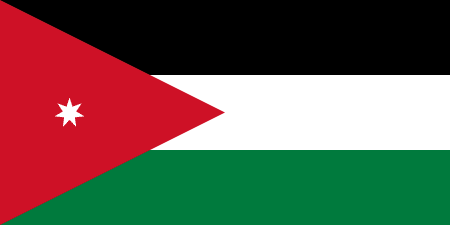
Nov 17, 2014
Tayel Alkhamayseh, president of the Independent Union of Phosphates Workers in Jordan, returned to his job this month after worker and human rights organizations denounced his November 6 arrest and suspension, pressed for his reinstatement and decried his arrest as a move to prevent unionization at the plant.
The Jordanian Federation of Independent Trade Unions (JFITU) sent letters protesting his detention to the Ministry of Labor and company management. The National Center for Human Rights and Jordanian civil society organizations generated additional support for Alkhamayseh, who was reinstated after a meeting with management in which it was established that he had no intention of declaring a strike.
The Phosphate Workers Union is affiliated to the JFITU, which is campaigning for the Jordanian government to adopt legislation to allow full freedom of association for all workers.
The JFITU says Alkhamayseh’s arrest and suspension indicate continuing pressure to restrict the practice of independent trade unionism in Jordan. The federation notes that his reinstatement is an important demonstration of Jordanian support for independent trade unionism.
The federation formed last year, when nine unions representing more than 7,000 workers joined forces to mobilize for improved economic conditions and greater political freedom.
Alkhamayseh, an engineer, works in the White Valley phosphate mine near Karak in the south of Jordan. As president of the workers’ union in Karak, he organized a meeting that included workers from several branches of the same company. Management then suspended Alkhamayseh and accused him of inciting a strike. In response, workers organized a protest and work stoppage.
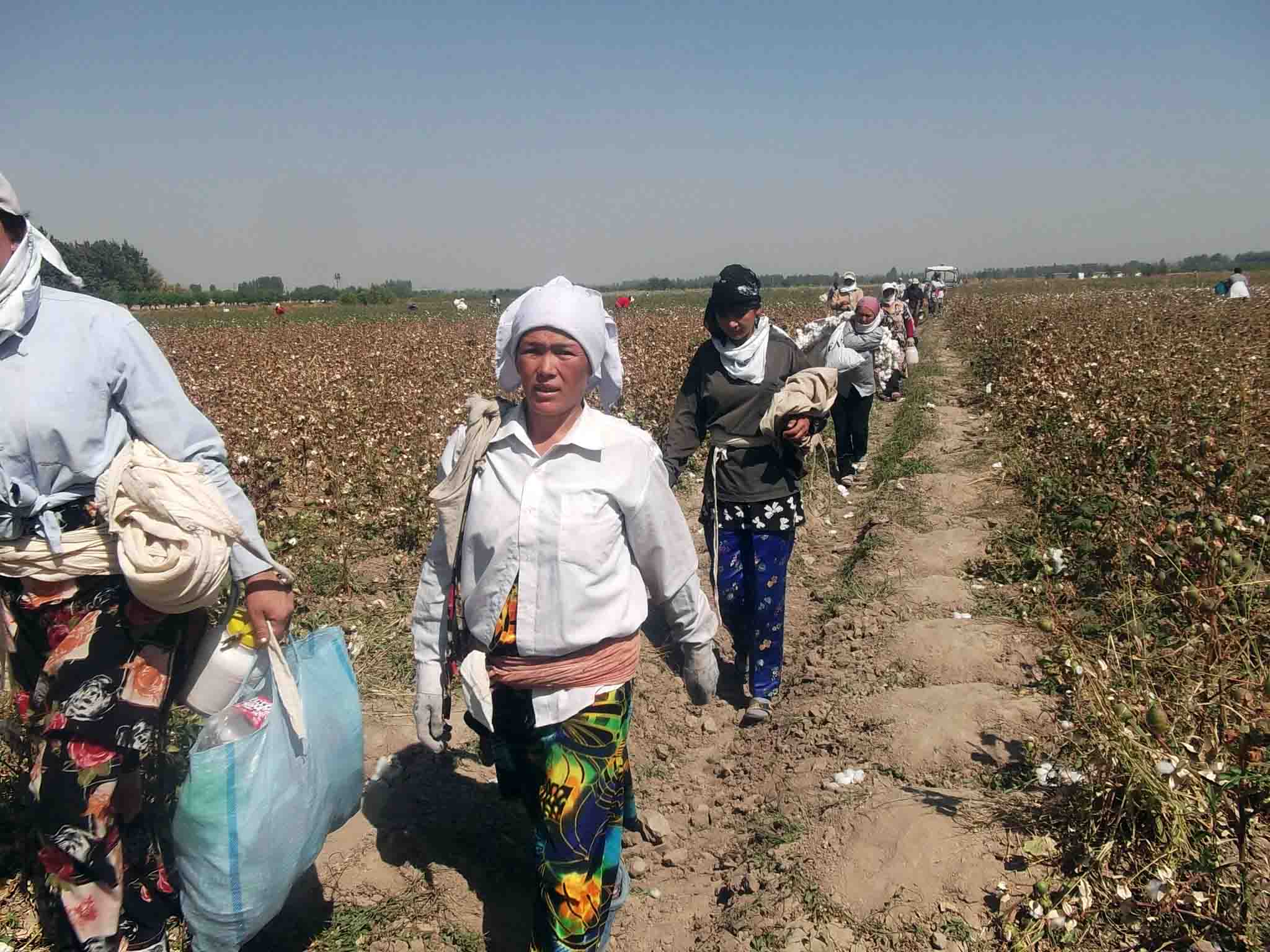
Nov 14, 2014
Uzbekistan continued using forced labor, including children, for the country’s recent cotton harvest, with more teachers than ever compelled to toil in the fields this year, according to a report released today by the Uzbek-German Forum.
In schools across the country this fall, 50 percent to 60 percent of all teachers were absent from classrooms at any given time, leaving schools severely understaffed and unable to conduct normal classes.
The report, a preliminary look at Uzbekistan’s state-sponsored labor system of cotton production this season, found that the government forced fewer children to work but replaced them with university students and public- and private-sector employees.
Yet the report documented numerous instances of child labor in several regions and concluded that “these cases indicate that the government of Uzbekistan has not undertaken durable, structural reforms to eliminate definitively child labor in Uzbekistan. Nor has the government made it clear to local officials that child labor will not be tolerated and task them with enforcing laws prohibiting child labor.”
The assessment parallels that of the U.S. State Department, which in October placed Uzbekistan among 12 countries with the worst forms of child labor. The State Department report, “Findings on the Worst Forms of Child Labor,” listed Uzbekistan as one of three countries, along with the Democratic Republic of Congo and Eritrea, that received the assessment because of government complicity in forced child labor.
The Uzbek-German Forum report, compiled by experienced researchers in six regions of Uzbekistan as well as the capital, Tashkent, found a large number of injuries and deaths during this season’s harvest, including at least 17 people who died and 35 who were injured after being struck by cars or tractors. Individuals forced to pick cotton were housed in garages, unused farm buildings or local schools, nearly all of which were unheated and without water or hygiene facilities.
For decades, more than 1 million Uzbeks have been forced to pick cotton each fall. They are threatened with the loss of jobs, social benefits and public utilities if they do not participate. Many face fines and criminal prosecution, according to the report.
Profits of Uzbek’s cotton sector support only the government, according to the Uzbek-German Forum. Farmers are forced to meet state-established cotton quotas, purchase supplies from one state-owned enterprise and sell the cotton to a state-owned enterprise at artificially low prices. The system traps farmers in poverty, and the state profits from high-priced sales to global buyers who use the cotton for goods made by brand-name retail and apparel supply chains.
Read the full report: “The Uzbek-German Forum for Human Rights Preliminary Report on Forced Labor During Uzbekistan’s 2014 Cotton Harvest,”





